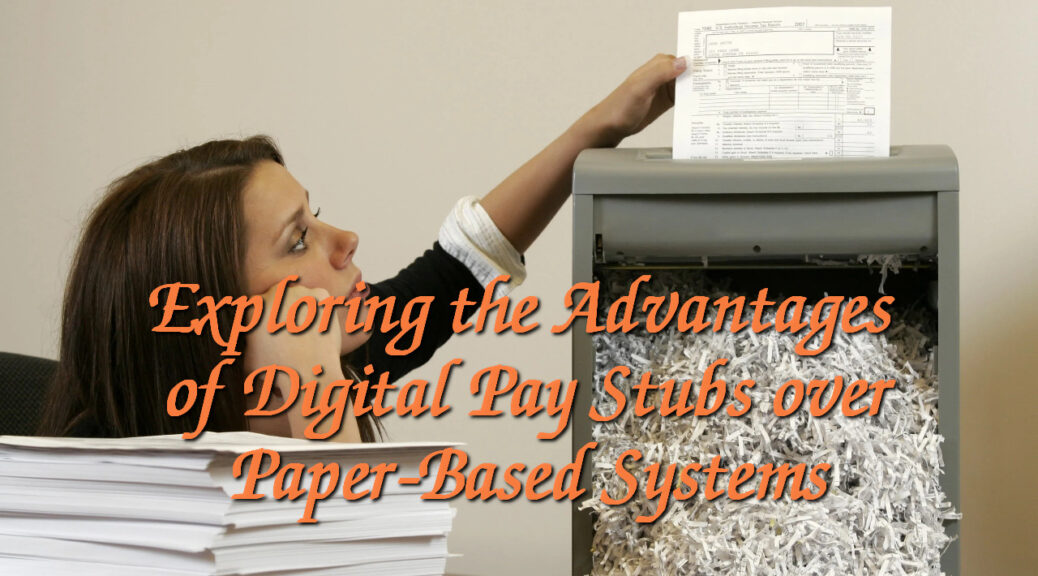
Exploring the Advantages of Digital Pay Stubs over Paper-Based Systems
In recent years, the shift towards digitization has revolutionized various aspects of business operations, and the payroll process is no exception. Traditional paper-based pay stubs are gradually being replaced by digital pay stubs, which offer numerous advantages for both employers and employees. In this article, we will explore five significant benefits of digital pay stubs over paper-based systems.
Enhanced Efficiency and Cost Savings

One of the most apparent advantages of digital pay stubs is the significant increase in efficiency and cost savings they offer to businesses on how to make a paystub. Adopting a digital system streamlines the payroll process, eliminating the need for manual calculations, printing, and distribution of paper stubs. This not only saves time but also reduces paper, ink, and postage expenses. Moreover, digital pay stubs can be automatically generated and securely stored online, reducing the need for physical storage space and the risk of document loss or damage. Overall, these efficiency improvements result in cost savings for the company.
Environmentally Friendly Approach
The adoption of digital pay stubs aligns with eco-friendly practices, making it a sustainable choice for businesses. The reduction in paper usage helps to conserve trees, reduce carbon emissions associated with paper production, and minimize waste. By making this switch, companies can contribute to a greener planet and showcase their commitment to environmental responsibility, which can positively impact their reputation among employees, customers, and stakeholders.
Improved Accessibility and Convenience

Digital pay stubs offer employees unparalleled convenience and accessibility. With paper-based systems, employees often have to rely on physical copies, making it challenging to access pay information when needed. In contrast, digital pay stubs are easily accessible online via a secure portal, allowing employees to view their pay details anytime and anywhere with an internet connection. This accessibility enables employees to monitor their earnings, deductions, and tax information, fostering transparency and reducing potential disputes.
Enhanced Security and Privacy
Paper-based pay stubs can pose significant security risks, as sensitive payroll information can be easily misplaced, lost, or fall into the wrong hands. Digital pay stubs address these concerns by offering enhanced security features. Access to digital pay stubs can be restricted through authentication protocols, ensuring that only authorized personnel can view the information. Additionally, data encryption and secure servers protect the information from potential cyber threats. This heightened security instills confidence among employees, knowing that their personal and financial information is well-protected.
Integration with Payroll Software and Analytics
Digital pay stubs can seamlessly integrate with payroll software, leading to further time and resource savings. Automated payroll systems can calculate wages, taxes, and deductions accurately, reducing the likelihood of errors. Moreover, integration with analytics tools allows businesses to gain valuable insights into payroll data, facilitating better decision-making and budgeting. Employers can analyze trends, identify cost-saving opportunities, and improve financial planning based on real-time data from digital pay stubs.
In conclusion, digital pay stubs offer numerous advantages over traditional paper-based systems. From enhanced efficiency and cost savings to improved accessibility and security, adopting digital pay stubs is a smart move for modern businesses. Furthermore, the environmentally friendly approach aligns with sustainable practices and can positively impact a company’s reputation. As technology continues to advance, more businesses are expected to embrace digital pay stubs, reaping the benefits of a streamlined, secure, and convenient payroll process.